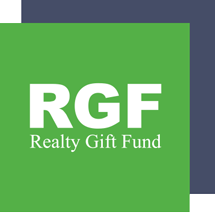Presentation by Bruce Geiss

Charitable Gifting of Real Estate program.
Interview with Bruce Geiss of Realty Gift Fund for his presentation to the joint meeting of the Palm Beach County FL and East Coast estate planning council FL. Video provided by Quantum Realty Advisors, Inc.
PDF file VIEWER.
Transcript
This is a fun group, so thanks for inviting me into your group.I'm going to cut to the chase real fast, because I know that we're short on time here.
Realty Gift Fund is a nonprofit that specializes in the charitable giving of real estate. I do teach a class on this subject. I met Chris in that class. And let me describe to you the problem that we're trying to solve.
The charitable giving of any asset requires donors and nonprofits.And when it involves a major gift, it requires advisors. Those are the people who are in the room tonight helping donors with their charitable giving strategies and their estate planning strategies.
When it comes to the charitable giving of real estate, donors and advisers have always been pretty enthusiastic about the idea of a gift of an appreciated non cash asset that is entitled to all sorts of tax benefits, escapingcapital gains tax deductions for current value and for the donor, allowing the donor to shed a portfolio of an asset that they no longer need.
But there is a problem in charitable giving of real estate that has existed for 100 years and that's the nonprofits do not like gifts of real estate. 98% of them will say no to that because there's too much risk, too much liability uncertainty.
They have too little expertise or cash resources, and they most often just say no, and their acceptance policies created by the board say no, or only in a few limited cases. And this is what has blocked the pipeline of the charitable giving of real estate.
The importance of this is that real estate is the largest asset class in America, over 40%. But the charitable giving of real estate, when it comes to total giving, real estate only contributes about 2% of the charitable pipeline. And therefore, my friends and I, who are real estate professionals and have always had one foot in the philanthropy world, created Realty Gift Fund as a specialized nonprofit whose exclusive mission is to accept charitable gifts of real estate.
We got our original determination letter back in 2001. We put Realty Gift Fund on the shelf. We opened it up in 2017. We've been after it now for about four years. And we accept charitable gifts of real estate of any type, anywhere, including outright donations, gift of the entire asset, or bargain sales where the donor needs from us a partial cash payment. That's what the IRS calls a bargain sale, cash part gift.
We accept these properties, we prepare them for the market, we sell them for cash, and then we send the net proceeds to the nonprofit world. In other words, we're working on behalf of the nonprofit worlds. There's 1.3 million public charities who are benefiting from the work we do make these grants to charities our donors have recommended or to charities who have referred the donor to us or to charities that we naturally support.
This little graph of this little chart on the right shows how Realty Gift Fund is stepping in the middle between the donors, advisors and the nonprofit world to intervene on a special task as a collaborating nonprofit to allow the charitable giving of real estate.
We support many nonprofits. The five that are listed here on top are some of the more important ones. The largest public charity in America is Fidelity Charitable, the largest respiratory hospital in America National Health. These and 30 others have received grants from Realty Gift Fund from the work that we do. And of course, they benefit from what we do. That's obvious.
But the reason I'm here talking to you is that the advisory community also benefits when it comes to building a client list. Getting new clients, retaining existing clients, hanging onto the next generation transaction fees, getting fees for assets under management. All of these benefits accrue to the advisory community when they can convert a hard asset into cash. That's kind of why I'm here.
I'm going to give you a quick example of something that we did in Chicago from a New York donor who had an appraisal on a 70% vacant shopping center, $3 million.
We wrote them a check for $600,000 to retire some debt, give them some cash.Net gift, charitable deduction, $2.4 million. We renovated the building. It was 70% vacant. So we had a lot of work to do. We spent another 100 grand on it. We backfilled some of the space with a letter of intent.
We were ready to make the tenant improvements, move the tenant in when a buyer came along, said, stop, I'll take it as is. And we were able to sell this asset to a California investor.
We created about $800,000 for the charitable world, and 20 individual nonprofit organizations benefited from the grants that we made.
Chris wanted me to show you an example of something that we produce after we have our very first call with a donor.
We produce what is called a net gift estimate that says, Dear Mr. And Mrs.
Donor, you said your property was worth about $700,000.
You said you think you need $175,000 in cash as a partial cash payment.
That would leave $525,000 for your net gift, which is your charitable deduction.
And if we are able to sell that property for $700 and we repay ourselves the check that we wrote to you and we have some holding costs and some sale costs, we should not excuse me $470,000 from this deal.
And we do go on to say in this net gift estimate, typically, here's how much Realty Gift Fund will retain for the services that it has provided you, and here's how much is going to go to the specific organizations that you support.
We never keep more than 10% unless it's a very small gift.
We can get these a deal like this done in about 60 days.
So this gives you just sort of a snapshot and an introduction.

